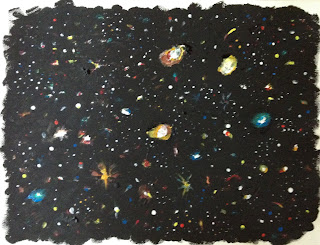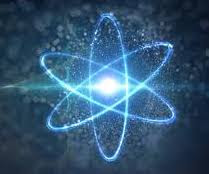Lectionary: Proverbs 8:1-4, 22-31; Canticle 13; Romans 5:1-5; John 16:12-15
En el nombre del Dios, que es Trinidad en unidad. Amen.
Last week on Pentecost Sunday we celebrated the establishment of the community of Christ on earth. Today, Trinity Sunday, we celebrate the Community of God. One reason the liturgical calendar puts these principal feasts side by side is that we learn how to be the community of Christ on the earth by living like the community of God: a community in unity with itself.
Trinity Sunday is when we pause to contemplate what it means to us that God is Trinity in unity; one God in three persons. There is no expectation that we’ll figure out anything new. It took the church 325 difficult years to agree on how to understand and talk about who Jesus was. That was the great achievement of the ecumenical Council of Nicaea in 325 from which we received our Nicene Creed. And it is because we can stand firmly on that foundation that we are able to soar freely into the knowledge and experience of the mystery of God as God chooses to reveal to us today.
Years ago, I was talking with a friend of mine who was becoming an Episcopal priest. I asked him what heaven would be for him. He said that for him, heaven would be to know everything there is to know about God.
That made me very sad. How could this smart man think our finite brains could ever hope to truly comprehend the infinite? More importantly, however, was my friend’s use of the word “about.” To seek to know about God isn’t the same as to seek to know God. Knowing about God objectifies God. God is other, outside, observed.
I don’t think I’ve shared with you yet about one of my hobbies: quantum physics. Quantum physics is concerned with the micro-universe, sub-atomic particles like quarks, and the macro-universe, galaxies – going as far as we can go in both directions. What I have learned from this discipline is that everything we learn points us to something we don’t know.
One of my favorite theoretical physicists is Fred Allan Wolf who I’ve been reading since the early 1980s. Dr. Wolf says the farther physics goes into the micro and out to the macro-universe the closer we get to mystery. “The trick,” he says, “the real trick in life is not to be in the know, but to be in the mystery.”
A scientist said that! Do you see why I love this stuff?
When we think about it, there is much we already know about God. We know that God is the source of all that is. We know that Jesus said he and God are one. We know that Jesus promised the Holy Spirit of God would come, clothe his followers with power from on high, and lead them into all truth. And we know that this would happen over time as Jesus said in today’s gospel.
We know that God is relationship: a Trinity who lives in Unity. We know that we have been brought into that relationship through Jesus who reconciled us to God, making us one with God as he is one with God.
We know that God continues to be revealed to us in creation, in prayer, in community, in our own bodies, and in the gift of our intellect. When Jesus said, I have many things to say to you and you will know them over time, he was talking about the kind of knowing that happens by entering the mystery – a knowing that happens in the wholeness of ourselves; in the wholeness of our community, and in the wholeness of creation – from the tiny-ness of a quark to the vastness of a galaxy.
 |
| Painting credit: Valori M. Sherer, 2014 |
God is continually revealing God’s self to us, inviting us into the mystery of God. Have you ever had the experience of a breath-taking sunrise? …or stood in the timelessness that exists as you peer over the edge of a cliff on a mountain? Have you ever heard the healing power of the ocean's crashing waves? …or been lost in the universe of a star-filled sky? If you have, then you have been in the mystery of God.
When I hold my grandson and he loves me with his whole little self, I know God. When my dog snuggles into me and looks at me with adoring eyes, I know God. Every time we gather for Holy Eucharist where we, as the community of Christ on earth, are nourished, strengthened, and enlightened by Word and sacrament, we know God.
God is revealed through our prayers and hymns. Sometimes, God chooses to be revealed in the midst of a hymn or a prayer we’re going through for the thousandth time, not really paying attention - until some divine truth hits us, switching on a light of understanding, and transforming us entirely.
Trinity Sunday is a good Sunday to be an Episcopalian. We don’t try to solve the mystery. We simply enter it. When we do, when we’re quiet and make space for God to speak in us, amazing things can happen. Love we didn’t know we could have is given to us, insights light up our understanding, and truths are revealed that connect us to everything and show us how to go forward in our time on earth.
Theologian Christopher Morse says, “The Spirit’s working for freedom is revealed only by the free working of the Spirit.” Standing firmly on the foundation of our faith, we can be in the mystery, soaring freely with God going wherever She leads, certain that there is always more God, more love, to be revealed to us.
I close with a prayer from the Revised Common Lectionary Prayer book. Let us pray:
“God of delight,your Wisdom sings your Wordat the crossroads where humanity and divinity meet.Invite us into your joyful beingwhere you know and are knownin each beginning,in all sustenance,in every redemption,that we may manifest your unityin the diverse ministries you entrust to us,truly reflecting your triune majestyin the faith that acts,in the hope that does not disappoint,and in the love that endures. Amen.” (Source)


No comments:
Post a Comment